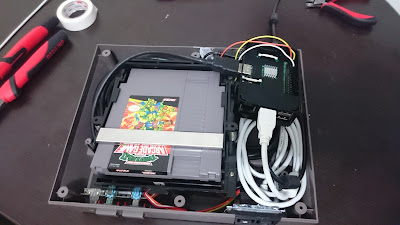We all heard the exciting news! Nintendo is releasing a modernized version of our beloved NES system. This is a nice move that goes against the hype of newer consoles from Microsoft and Sony with their 4k resolution, online networks and high-tech games. For sure it caused a bigger stir in the press than the other companies getting ready for holiday sales.
When the announcement came out, I immediately scanned my alternatives to import it from the US in time for December, and started imagining how it will look in my living room and how I will enjoy classic games in a modern and stable equipment with HDMI, usb ports and digital games that last forever. Nevertheless, as time passed, I started to feel I wouldn't be completely satisfied and desisted on buying it. Here is why:
Game Catalog and Pricing
I think this is the biggest miss on the console. In total there were 713 games released when console was active, and in the re-release we are getting 30 awesome pre-installed games. Nevertheless, this is short of 5% of the catalog and a lot of classics are missing, like Ninja Turtles, Duck Tales, and even the original Contra, among many others.This wouldn't be a problem if additional games could be bought using something similar to the Wii Virtual Console store which is already implemented and functioning, with games priced at $4.99. Keeping in mind these are 25+ year-old games, they can be priced at a very low cost or bundled together, leaving huge margins for the publishers.
Additionally, in 2016 the rule of thumb is content on-demand, like Netflix and Deezer, so I would have expected a monthly fee with different options and amount of games and time (for example, 50 games for a year, 100 games per month, etc), and I would have been ok with it.
Vintage user Experience
As simple as it sounds, the small details like the case door that doesn't open, no expandable memory (that you could insert like the old cartridges) and a reduced-size versus the original turn this amazing idea into a tasteless-appleTV-like box. Yes, it will be plug and play, easy to use, reliable and simple, but vintage gaming comes with experiences that were part of our enjoyment as much as the games.To bring an example of this user experience, lets remember our beloved cartridges. It still amazes me how at the time, in 1985, without internet, youtube, tutorials and such, people across the globe stablished the convention to blow on the cartridges in order to make it work, and I feel this console will not bring anything similar to this, in the end it won't live in our hearts like the original.
Other Consoles
For the several years I have enjoyed the alternatives catalog of games from other consoles: SNES, n6, nDS and PS1. I enjoy exploring and reading the history behind the games and then trying them separately for a journey to the past. This is what retro-gamers do. The idea of having a single console seems very limiting and sounds like something I will get bored of as soon as the hype is over.The ideal scenario, again, is the Wii Virtual Console store, where the offer for games for the NES is 243 games, for the SNES is 141 and 30 for the Nintendo 64, as well as 174 for the different GameBoys. An already implemented store, with access from an existing web or from an existing console, is probably very simple to incorporate on other platforms and it doesn't make sense they left it out in this new product.
There are Alternatives
Retrogaming is pretty common, more than you think, and there are million of tutorials online explaining how to make it work for people without programming and computing skills. After seeing Nintendo's proposal on a retro-console I realized I wanted one, but with the features I have mentioned above so I set on the task to build it in the lapse of 1 month.With a raspberry Pi, an old-console for a case (you can pick NES, SNES, n64, you name it), simple physical modifications to convert plugs to modern USB and HDMI, you can manage to build what Nintendo should have. Check out these pictures from my build that redirected my expenditure of $59.99 from a cash-generating company like Nintendo to an independent developer and electronics parts
Torn down NES case. Here you can see the connections before plugging the raspberry berry. There is a power input from the back that has a switching circuit passing through the power and reset buttons, a switch for the cartridge (the raspberry pi doesn't turn on without a game cartridge) and the usb controllers.
Completed build. All cables in place, the raspberry plugged in and the cartridge inserted to close the power circuit.
Full size nintendo Retro Console. With USB controllers on the front, HDMI connector on the back, and a working case door that needs a cartridge to operate.
If you want to check all the features of Nintendo's classic console, you can click here and visit the official page. For ideas on creating a console with the raspberry pi, you can search on youtube for "retropie NES" and check all the different implementations to inspire yourself.
In the end, I think Nintendo missed a great opportunity to launch a retro-console to withstand time. This will be successful in the short-term (Christmas sales), something like Pokemon Go or Iphone-Mario did for Summer, but soon it will be discarded from being a revenue generating product to a nostalgic trophy to show-off and not to use.
What are tour thoughts on this retro-console? do you think Nintendo should have built it differently? Leave your comments in the section below, I'd be glad to read them!




No comments:
Post a Comment